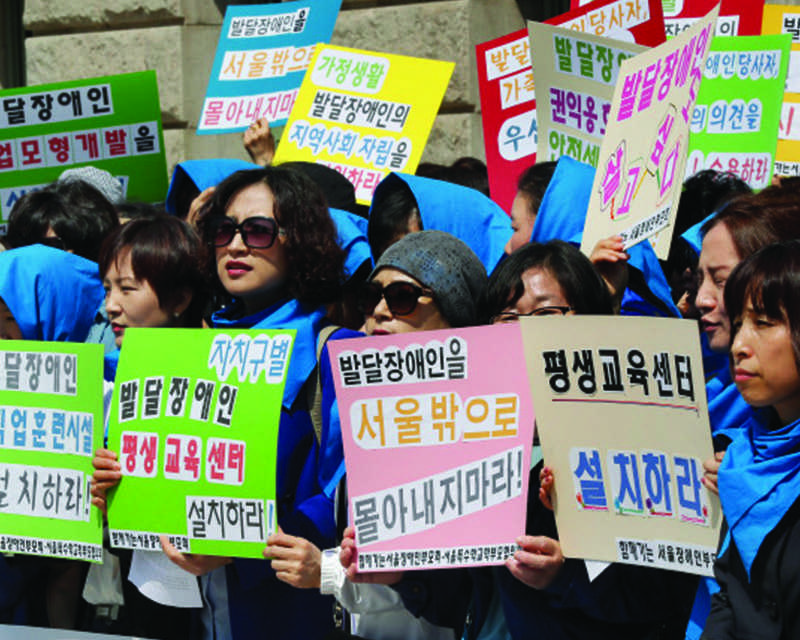Past demonstrations have underscored the lack of special needs schools in South Korea as an urgent national issue. In 2017, more than 80,000 people signed an online petition to support the Seoul education office’s plan to build a special needs school in the Gangseo district. After years-long protests by parents, the Seoul Metropolitan Office of Education (SMOE) has vowed to open three specialized schools in the city by 2019. Though there have been numerous proposals in establishing a school for the handicapped, the plan has also met opposition by residents in the Gangseo district.
“It is important for a society to provide an adequate education for students with disabilities” said Hye Yong Min, Deputy Director of Communications. “Misconceptions about the limits of people with disabilities contributing to society drive discrimination in education and the workplace. Korea is behind other developed societies in this regard, but it has come a long way from when I was here in the 1990’s. The construction of these schools is evidence that Korean society is continuing to evolve in this respect.”
In Korea, children with disabilities often find themselves unsupervised and left without much attention at regular schools. Despite the government’s goal to create an inclusive educational system, such students’ needs often go unnoticed or ignored. However, even as parents try to find other options, they often run into extensive obstacles, such as being put on the waitlist of a special needs school.
“I find it appalling that students with disabilities are discriminated against and have to go through such hardships to receive education” said Jaeho Hwang (10). “The lack of schools and the large number of students who cannot attend a special needs school should be an incentive to create not just only three, but several more schools.”
Seoul faces a serious deficiency of such special needs schools, with only 29 in the whole city. Of the underestimated 12,929 students with disabilities in the city, only 4,496 students are admitted into such schools. This exclusivity poses additional challenges for disabled children and their parents each year. Often, kids attend schools in other parts of the city, which can be a physical and mental challenge.
On the other hand, SIS has policies both similar and dissimilar from Korean public schools. According to Gray Macklin, high school vice principal, SIS has full access for students with physical disabilities, however, a bit different for mental disabilities. SIS is able to make accommodations for students with minor disabilities but does not modify the program of study for students.
While the government attempts to boost measures to improve the educational rights of disabled students, parents believe that it is essential to raise public awareness over the disabilities. One thing is for sure: South Korea is yet to fully develop into a society where people with a disability aren’t judged and discriminated, but baby steps are being made in hope of a future where they will be.

